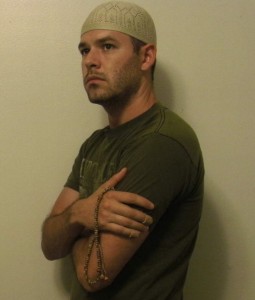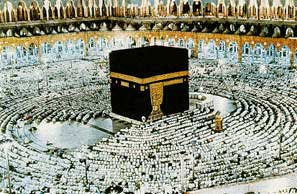Ramadan is the ninth month on the Islamic lunar calendar in which Muslims honor the fourth pillar of Islam: The Fast. The month of Ramadan begins at the first siting of the new moon for the month and ends on Eid ul-Fitr, the beginning of the next month in the lunar calendar.
This month is special and the most dynamic/important of the year for a few reasons:
- The Qur’an was revealed to Muhammad during Ramadan (See below, Qur’an 2: 184).
“The month of Ramadan in which was revealed the Quran, a guidance for mankind and clear proofs for the guidance and the Criterion (between right and wrong). So, whoever of you sights the month, he/she must observe fasts that month and whoever is ill or on a journey, the same number (of days which one did not observe fasts must be made up) from other days. Allah intends for you ease, and he does not want to make things difficult for you. He wants that you must complete the same number of days and that you must glorify Allah for having guided you so that you may be grateful to Him.”
- Muslim fast from first light (dawn) until sunset. This practice lasts for the entire month.
Why are these two aspects so important?
Obviously we need the Qur’an if we want Islam. There is some controversy over the above verse and others regarding whether or not the entire Qur’an was actually delivered to Muhammad (pbuh) during the month (or even the so-called “Night of Power” which no one knows the exact date of), or if Ramadan was simply the starting point for the 23 years of dispensation of the Qur’an from The Prophet. This little detail aside, Ramadan is a time when many Muslim across the world read the Qur’an, part by part, in its entirety. Special prayers and reading sessions within masjids (and at home) called taraweeh accommodate this practice and usually coincide with the iftar, the break-fast meal at sunset. For this purpose, the Qur’an is read in 30 sections, making an entire reading throughout the month a little more manageable. As one of my new Muslim friends advised however, we should set aside plenty of time for reading, as taraweeh sessions can last for well over an hour.
But why the fast? Do we have to go hungry because we have the Qur’an?
The fast and fourth pillar of Islam serves three purposes:
- To honor/remember/sympathize with those who go hungry everyday.
- Fasting promotes healthy eating habits by reducing waste.
- Fasting increases spiritual discipline and focus.
How often do we gorge ourselves at the buffet line, or throw food away at the conclusion of a meal? Especially here in America where there’s a cheap fast-food joint on every corner, it’s easy to forget how food actually manifests into our lives and what its purpose is. Are you eating to nourish your body or for pleasure? Now, that isn’t to say we shouldn’t enjoy our food, but the lesson here is moderation.
As an honorary Muslim this month, I am participating in the fast, and I’ve already lost about five pounds. When I break the fast at the end of each day with the traditional three dates and a glass of water, I am more grateful for not only the food, but those who prepared it and for the processes/effort that go into creating food. I am also more sympathetic toward those who go without. More on that in a moment.
Fasting also has spiritual benefits. The root of the word Ramadan means “intense heat/fire.” The imam at my host masjid brought up this point last Friday during jum’ah (congregational) prayers. He said that fasting during Ramadan involves more than just abstaining from food, it’s abstaining from all unwholesome things–things we should abstain from all year!–and this includes gossip, backbiting, malice, cruel words, injury toward ourselves and others, all the negatives. Ramadan then serves as a point of friction then, he said, because heat is generated by friction between two points. Our desires, our ego, comes into friction with the spiritual demands of Ramadan, and so a fire begins. But fire needs fuel to survive, so what does it burn? The chaff of our character. The waste. The bad habits, and even excess fat leaves our bodies. We develop discipline and can therefore go harder, faster, longer.
My kind of philosophy.
But all this got me thinking. I’m told over and over again about how Ramadan remembers and honors the hungry, that we might gain more sympathy for them. That’s nice and all, but I’m pretty sure the hungry does not want our sympathy, they want food.
So why not feed them?
I asked this question to my Mentor. I said, “If we really want to honor the hungry and develop ourselves spiritually, then we need to actually help these people. Why not start a food drive at the masjid where we collect food for the whole month and then distribute that to the hungry in our community?”
He loves the idea, but there’s a problem: They’ve never done anything like that before. It’s one thing to ask for pity for the hungry, it’s another to ask for action. So my Mentor is now lobbying his masjid for this project. While he’s doing that, I took it a step further…
I asked a friend of mine, the pastor of a new church, to get in on the deal. “Why not ask all the church members to pitch in food for the month as well? After all, religions might not agree on theology, but everyone can agree on hunger.”
He also thinks it’s a great idea, but has to get back to me on whether or not the fledgling church can handle such a project.
I’ve only got one month with each religion, folks. That’s one month to learn and take in, but also one month to make an impact. It’s a safe bet that I won’t be around to see this initiative through, but you will be. I want Ramadan to transform from a time of honoring the hungry, to a time of feeding them. This is a chance to deal a serious blow to the misconceptions about Islam and the global hunger problem.
According to Bread for the World (www.bread.org), 925 million people are hungry and nearly 16,000 children die of hunger everyday. Your sympathy isn’t going to save them, but your action can. Imagine if every one of the earth’s 1.2 billion Muslims gave just one can of food for the hungry. That means everyone of these people has a meal that day. Think about it.
Here is my Ramadan challenge: Muslims, I want you to call/email/pound on the door of your imam or masjid leaders and demand that your masjid initiate a food drive this month. I didn’t say give money, I’m talking about reaching into your cabinets andtaking food from your own homes to give. Think about it: every fasting Muslim now has extra food to spare. That reminds me. Muslim owners of restaurants can do this too. How much food do you waste daily?
Call it “Operation Ramadan” or something, I don’t care and neither do the hungry. All they care about is the food itself. Too shy to talk to your masjid leaders? Send me their email addresses and I’ll ask for you. I challenge you to make this a tradition at your masjid, be the light in your community, be what Allah intended you to be. Ramadan is about burning away the waste and selfishness–about stepping outside our comfort zones–(sound familiar?). It’s time to turn up the heat, to take Ramadan to a whole new level.

